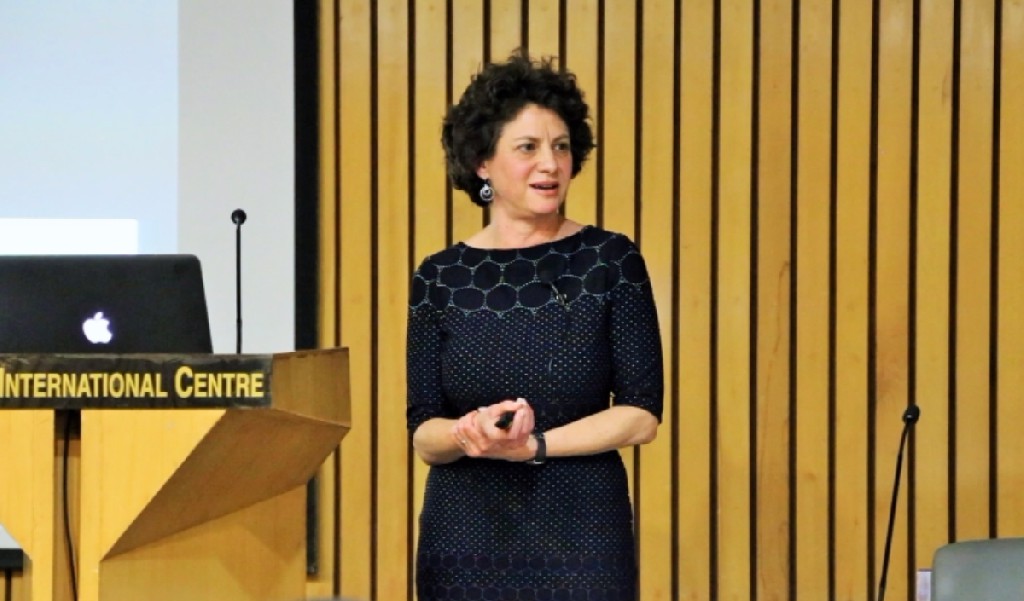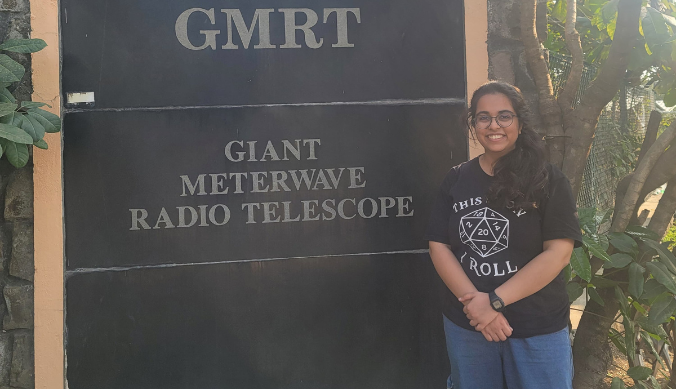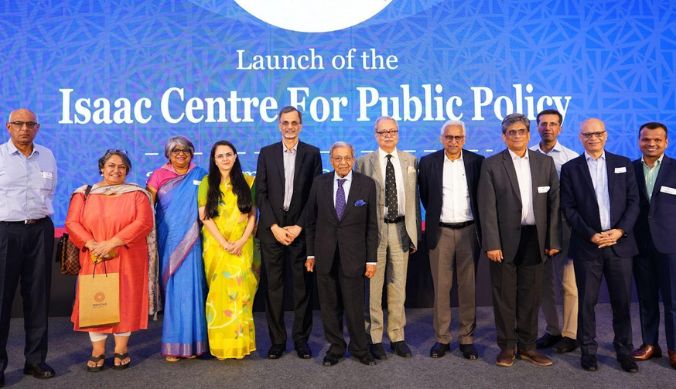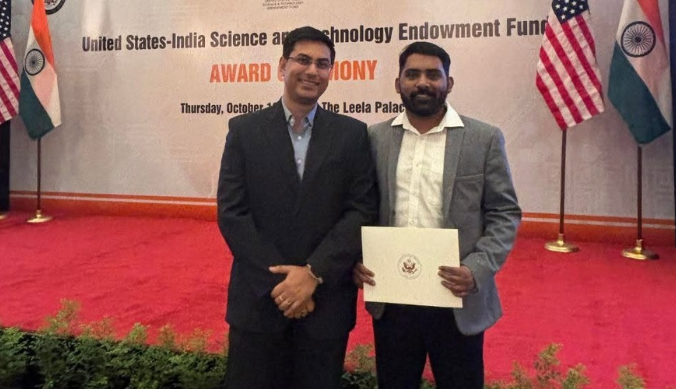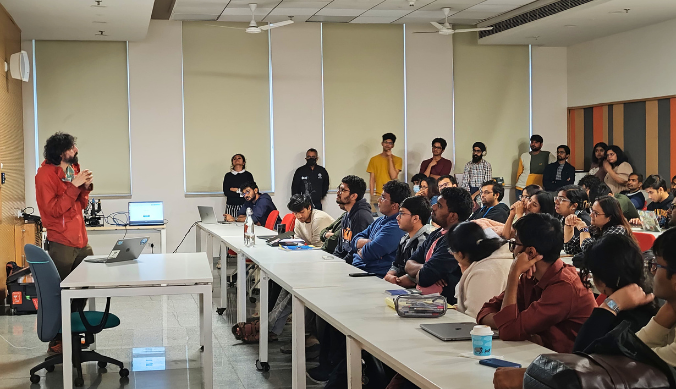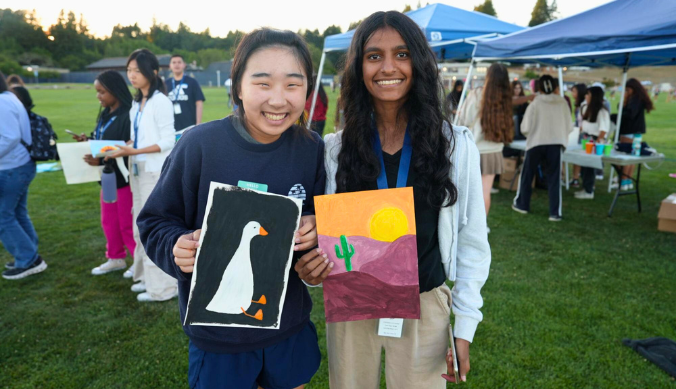Crossover lecture by Prof. Tamar Gendler, Yale University
As a part of the Ashoka Crossover lecture series, a talk by Professor Tamar Gendler was organized on 17th March, 2017 at the India International Centre, Delhi.
As a part of the Ashoka Crossover lecture series, a talk by Professor Tamar Gendler was organized on 17th March, 2017 at the India International Centre, Delhi. The topic for the same was “Liberal Arts in the 21st Century: Modern Questions, Ancient Answers”.
Beginning with an introduction to the ideas of various philosophers of ancient Greece, and an overview of Socrates and the dangers he was presumed to pose as one capable of “corrupting” young boys of Athens, Prof. Gendler stated that “if anyone ever questions the value of liberal arts and their capacity to change people’s souls, remember that ancient Athens thought the liberal arts were so unbelievably powerful, that their greatest practitioner was seen as the greatest threat to the stability of the state.”
The celebrated academician, who is currently a Vincent J. Scully Professor of Philosophy at Yale, spoke about the way different disciplines can converge by illustrating how various philosophical “insights” of ancient Greece can be used to understand the world, and to understand how one lives in context of their own identity, as well as the world around himself/herself. She started with Socrates’ insight with regard to self-knowledge, stating that “the key to self-knowledge, is the recognition that some part of ourselves is opaque”. The illumination of this insight, Professor Gendler went on to say, is what imperial social psychological tradition has focused on, and also explained some psychological studies in relation to this insight which dealt with the phenomenon of misattribution of feelings and emotions, and misjudgement of motivations; “our tendency,” she said, “of not knowing where our feelings come from”.
Professor Gendler, then, moved on to Plato and his philosophical ideas, which focused on the various parts of one’s ‘soul’ and the effect of the interactions between them. She spoke about Plato’s belief that the human soul consisted of three parts: Reason, Spirit, and Appetite, and comparison of these parts of the soul to a charioteer and two horses, where one horse was “a lover of honour and social recognition”, while the other represents indecency. The distinguished professor then added that such metaphors for the structure of human soul could be observed across various traditions across the world and that neuroscience, too, offers the same insights as Plato’s work. Speaking about the concept of ‘belief’ and ‘alief’ as well as reflective and “more primitive” parts of the soul, Prof. Gendler stated that conflict between these parts can cause internal strife, which is costly to one’s energy reserves. Emphasizing that no part of the soul is always right or wrong, she told the audience: – “[s]ometimes our reason overcorrects for things that the evolved systems have been particularly well designed to recognize”.
One way to make sure the parts of the soul are in harmony, Professor Gendler went on to say, is to make something a ‘habit’. Here, she drew upon Aristotle and some ideas of his philosophy to state how making something a habit could be used as a “magical too” to convert normative commitments (“this is how the world should be”) into descriptive laws (the way the world actually is). Explaining a strategy for this conversion, she told the audience, paraphrasing Aristotle’s insight, that “if you want to become something, act as if that is what you already are”.
Prof. Gendler also spoke about Cicero’s idea, which can be phrased as saying that sociability acts as a motivation, and then went on to elucidate Epictetus’ idea of the location of a particular behaviour, be it internal or external. Quoting his words, she told the audience the need to recognize that “[s]omethings are up to us, [s]omethings are not, and being able to differentiate between the two is key to maintaining one’s peace and quiet.
Expounding upon the importance of interdisciplinary education, Prof. Gendler concluded her talk by stating that the way these questions or themes are explored in different domains acts as evidence that in order to understand the world and flourish in it, one needs exposure to “our heritage” of philosophical, artistic, humanistic, and social scientific tradition—an exposure that liberal arts give us access to. “Liberal arts in the 21st century”, she went on to say, “are a set of modern answers to ancient questions, and a set of ancient answers to modern questions”.
(The writer is a first-year Undergraduate student at Ashoka University)
Study at Ashoka







